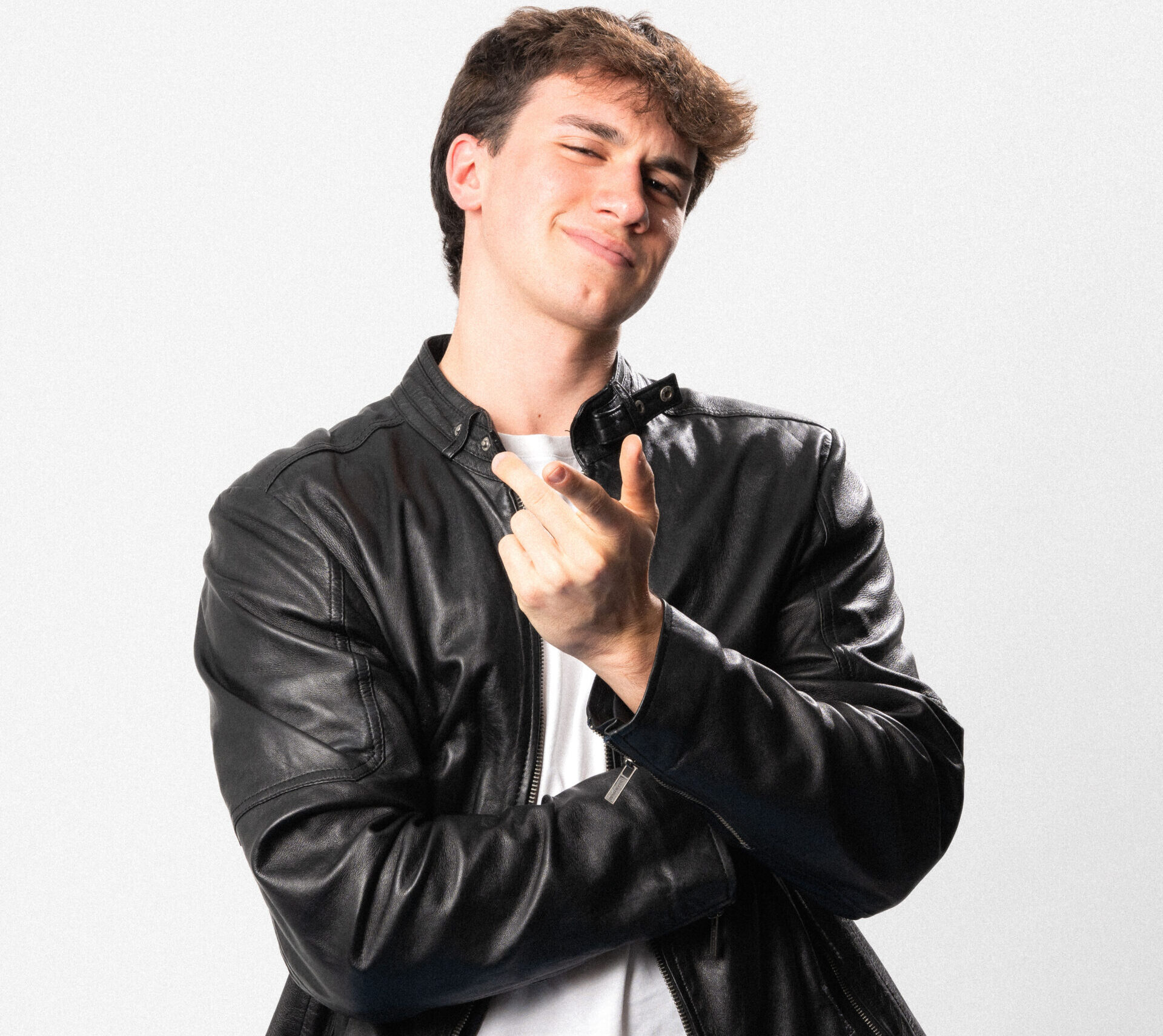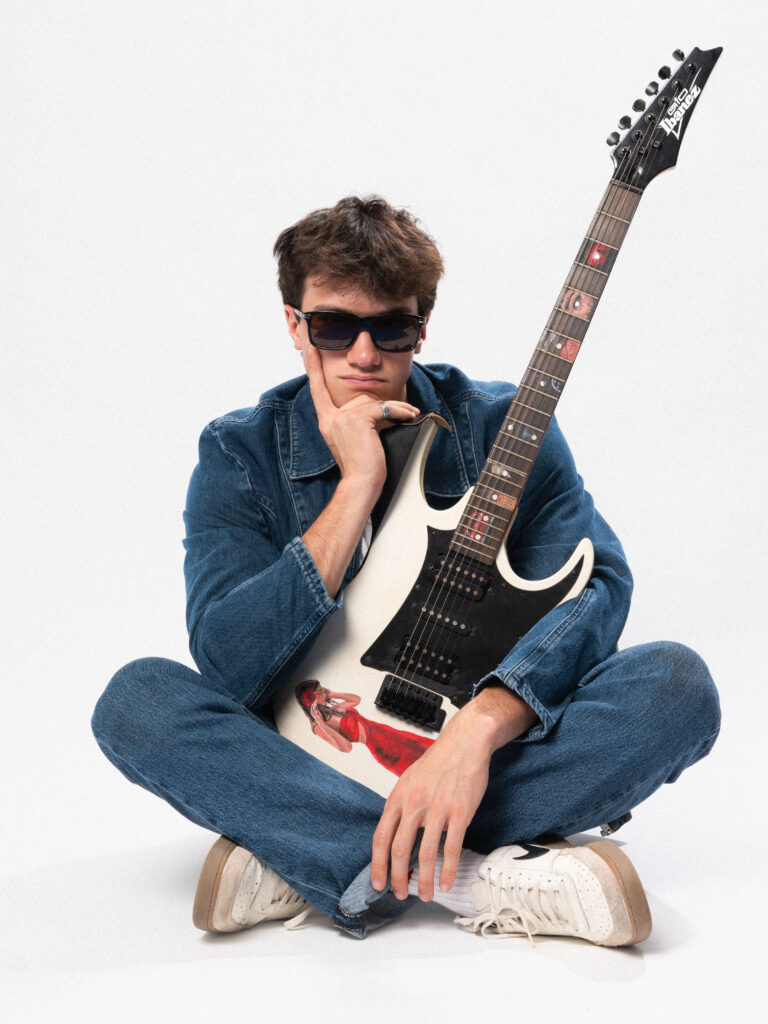
“Was It Real” Viral Hitmaker Ben Rodrigues Has Nothing But Big Plans for Domination
Since the viral explosion of his single “Was It Real”, South African singer-songwriter Ben Rodrigues’s musical trajectory has experienced a graceful uptick, with his breakthrough collecting the attention of over 13 million listeners on Spotify since its official release. The Durban-born nascent indie star strengthened his foothold in the music scene with two more drops: “One Last Chance” and most recently “Tell Me How”, with the former being coupled with visuals and reaching over 300 000 streams on Spotify. Industry was the 19-year-old’s defining watermark in his breakout year.
Pulling back the curtain on the teen sensation to find out more about Mzansi’s freshly unearthed wonderkid, Ben rolled back the hands of time and took a stroll down memory lane, recalling with fondness the time he spent with his brothers and his sister, and how his surroundings influenced him. A son to an already established musician Luis Rodrigues (who formed part of the South African band LMB), Ben also jested that although he never took after him the abilities of being able to instinctively finesse almost any instrument, he still inherited a portion of the acumen: singing.
“I grew up in a very busy home of three siblings. A younger brother, Cristiano; an older sister, Gabriella; and my older brother, Miguel. My older brother is 14 years older than me and so growing up we didn’t “play” together much, but I did look up to him a lot as a role model. A distinct memory I have is him playing “Old Pine” on my dad’s old acoustic guitar, the same guitar I still use today. I wanted to play the guitar since that day and in grade 4, at 10 years old, I picked it up for the first time. I guess you could say music runs in the family. My father, Luis Rodrigues, has a gift when it comes to music, he was a part of quite a successful South African band back in the day called LMB. He can pick up almost any instrument and play almost anything by ear… I didn’t inherit this gift, but I can sing,” he said.

Ben Rodrigues | SUPPLIED
Rodrigues found himself faced with tumultuous circumstances at home and school, such as having to navigate the situation of his parents divorcing at the age of 7 and trying to figure out how to deal with the changes as well as bullying when he was still in school in Durban. The rising star’s fortunes took a positive twist of fate when his mother and his stepfather decided to uproot themselves and Ben from the province and to find a home in St. Francis Bay.
It was in those years as a teen that he started to explore music more and even going as far as creating a persona with a suitable stage name for his musical endeavors. After striking out as a rapper and releasing an album, he decided to refine his skillset by first dedicating himself to becoming a professional musician and honing his producing skills. Setting out with nothing but a blueprint to make connections and to better his musicianship, he jumped in with abandon – a decision that would eventually cause him to cross paths with eventual collaborators Aidin Nortje and Devon Murray.
“I spent my teenage years in St. Francis, going to a school in Jbay. I got my first audio interface and started making music under the name Benjamin Rodrigues. After my first two singles went nowhere, I tried making more of rap songs and in grade 11 I changed my artist name to Rodrizzy. Rodrizzy went on to release an entire album called Crawling (it was terrible but not bad for a kid making music alone in his room). I knew I wanted to pursue music full time, and so I found a sound engineering school in Cape Town called SAE Institute.
“I knew I didn’t really care about the degree. I just wanted to make connections with the right people. And that’s exactly what I did. In the first week of university, this stranger, Aidin, and his friend, Devon, came up to me and asked: “Are you that kid who raps on TikTok?” This was the first time I had been recognised for my music, I guess. They would go on to ask me to come to the studio at their house to make some music together. I will admit, at first, I thought they were hitting on me, until I found out they both had girlfriends. And so, we went to the studio a week later and made the first demo of “Was It Real”. The rest is history,” he said.

Ben Rodrigues | SUPPLIED
All artists – whether painters, musicians, or writers – have special places they regard as creative sanctuaries, gardens blooming with ideas ready to be picked and transmuted into exquisite pieces of artistry. With three songs already making waves, the blossoming youngster described the environments he found most conducive for him to work, highlighting why he favoured the beach in particular.
“I believe it’s important to be someplace where you can let your mind be free. For me, it’s the beach, the studio, or my couch very late at night. This is where I do my best writing. It’s about finding a place where you can connect to something bigger than yourself. You don’t write the music – the music is already written. You just have to find it. I love the beach for a few reasons. The ocean provides a nice and gentle white noise, which helps your brain to stay clear. The air is always nice and fresh, and the sun is always a good thing. There are a lot of us artists who can learn about the ocean and how it relates to art in many ways. Every work of art is like a new wave, where no two are ever the same and to compare one to another would be futile. Waves come and go, just as a work of art is merely a reflection of a moment in an artist’s life, and to try and hold on to the wave would be to destroy what’s so beautiful about it,” he said.
Booked and busy as a bee, Ben revealed his plans to end off the year, which included an ambitious coastal multi-city tour. He also divulged that he would release his forthcoming extended play in 2025 and embark on local and international shows for the first and second quarters of 2025.
“We have a lot of big things coming for 2025. We are ending the year strong with a 10-show festival tour along the coast of South Africa, followed by the Red EP, coming early February. Then we have some other exciting shows like Splashy Fen in April and our first international show in London on the 26th of April. We have some ideas of more international shows in Europe and Australia which I am not allowed to share full details about yet. But it’s safe to say that 2025 is going to be a big year for Ben Rodrigues,” he said.

Ben Rodrigues | SUPPLIED
Inspired by the likes of Benson Boone, Shawn Mendes and One Direction, Rodrigues admitted that he was still interested in widening the spectrum of his musical capabilities. Nursing desires of one day being a part of an OST of a movie and someday making a country song, Ben remained resolute on the importance of pushing himself by dipping his leg into other genres for growth.
“I have looked up to Benson Boone a lot this year. His pure talent of singing, his stage presence and overall personality. I have also recently become a fan of Role Model. I am enjoying his new album a lot, and I find his stage personality very interesting, and I love his style. I listen to a very wide range of music and so my music taste varies and so does the music I write. I am still very early into my career and I’m looking forward to experimenting in a few genres of music. “Was It Real” was very pop and I’m excited to release Red which is more Pop-Rock/Alternative. I want to make all kinds of music. I want to be dynamic. I want people to know that Ben Rodrigues can’t be put in a box,” he said.
Rodrigues shared final words on what motivated him and what he believed was vital in boosting the attributes of his musicianship.
“Make what you love. Don’t make art for other people. Make music for yourself and watch how others love it too. Don’t be afraid to push the limits because there are no lines in music besides the ones on the sheet. Even if only 1 percent of the population likes your style of music, that’s still 80 million people. The most important thing is never stop. Keep creating,” he said.
Listen to “Tell Me How”:


